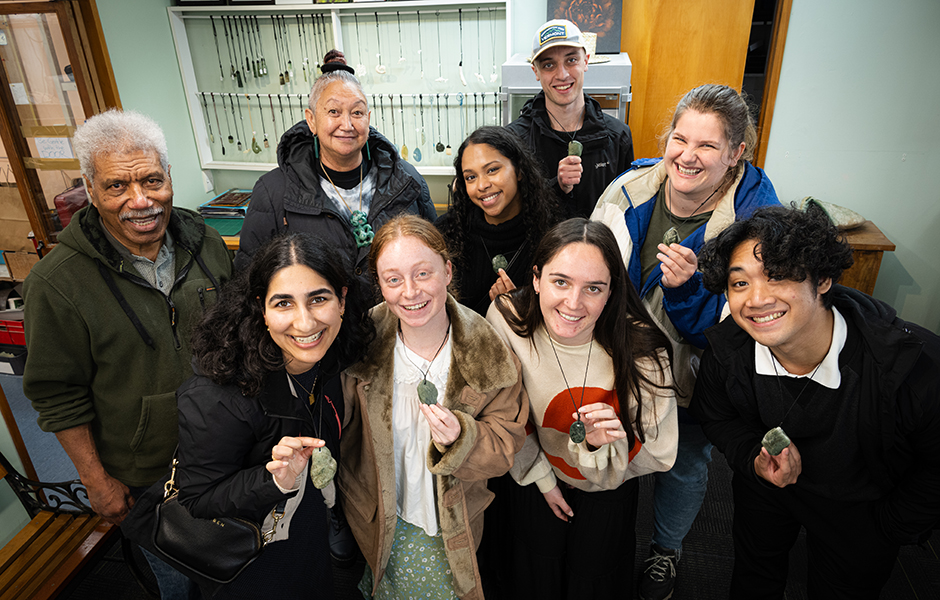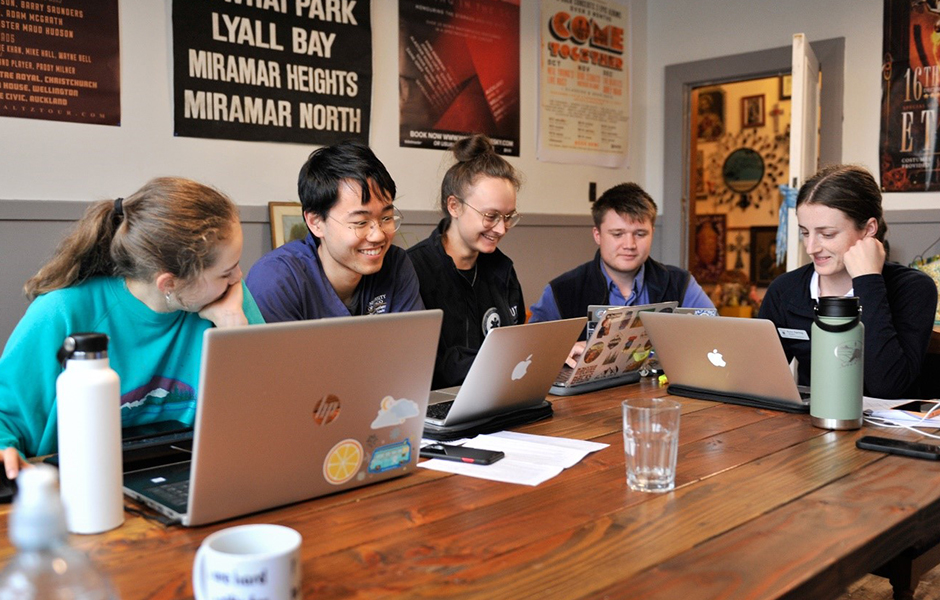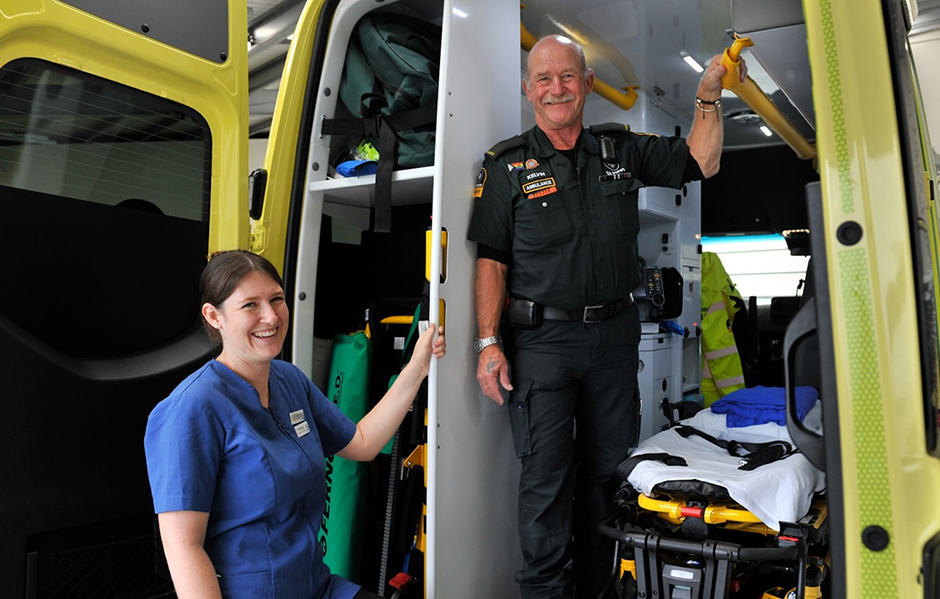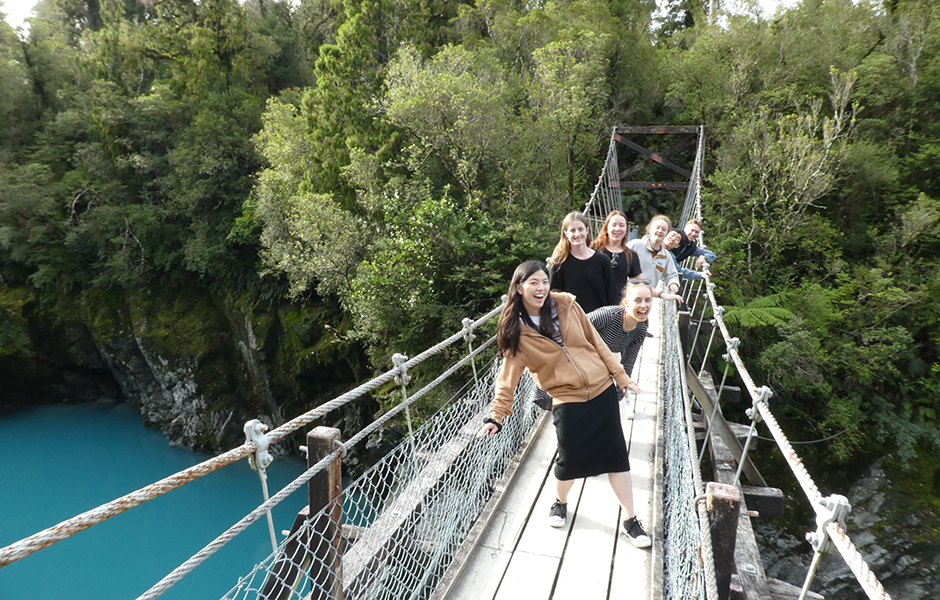Overview
Interprofessional education (IPE) learning activities offered at the University of Otago include the Te Tai o Poutini IPE programme. This began in 2021, modelled on a similar programme established in 2012 in Tairāwhiti. The programme brings up to 11 senior students together from a range of health disciplines, to learn about, with and from each other while gaining clinical experience in rural New Zealand.
The programme runs in five rotations of five-week blocks, with students in their home clinical placement for three days, and with a further half day either in their own discipline or shadowing another discipline. The remaining day and a half are a mix of IPE project work, classroom, reflection and activities that showcase the West Coast, highlight rurality and foster team development.
In addition, the students live in shared accommodation so there are many opportunities for informal interprofessional learning. The cost of the accommodation is provided by the programme for the five weeks, with one return trip funded for each student from their main clinical location.
The programme is administered by the University of Otago, partnering with Te Whatu Ora and private practices for placements within Greymouth and Hokitika, as well as with Te Pūkenga (Ara Institute of Canterbury, Otago Polytechnic, Nelson-Marlborough Institute of Technology (NMIT), Southern Institute of Technology (SIT), University of Auckland, University of Canterbury and Auckland University of Technology (AUT), to provide opportunities for students from the following disciplines:
- Dentistry
- Dietetics
- Medical Laboratory Science
- Medicine
- Midwifery
- Nursing
- Occupational Therapy
- Oral Health
- Paramedicine
- Pharmacy
- Physiotherapy
- Social Work
- Speech Language Therapy
Block dates for 2025
- Block 1: 2 March to 4 April 2025
- Block 2: 27 April to 30 May 2025
- Block 3: 29 June to 1 August 2025
- Block 4: 17 August to 19 September 2025
- Block 5: 5 October to 7 November 2025
Objectives
Key learning objectives incorporate principles of: Interprofessional health care, Hauora Māori, long-term condition management and rural health care. Students also meet discipline specific clinical learning objectives.
Interprofessional health care
The focus is on growing greater understanding between health disciplines about patient-centred collaborative practice, effective teamwork, interprofessional respect and how to effectively resolve disagreement.
“Interacting with several different health professional fields gave me a greater appreciation for how multi-faceted patient care can be.”
Hauora Māori
To better meet Māori health needs by working with Māori in culturally safe and respectful ways; enhancing understanding within Māori models of healthcare.
“I learned that connectedness is key towards building an effective working relationship with Māori.”
Long-term condition management
The students gain insight into the challenges people face living with multiple long-term conditions in a rural environment. They will increase their understanding of the importance of team-based collaborative care, self-management and the role patients and whānau play in the management of their conditions.
Rural health care
Students will develop an understanding of the characteristics of rural communities, including the benefits and challenges of living rurally, and gain knowledge into the impacts of this on access to healthcare. It is hoped that these opportunities will enhance their understanding of rural environments, the people who live here and the advantages rural living and working offer. Ultimately, we aim to better equip senior health professional students for comprehensive generalist practice, whatever their profession.
Activities
Most Fridays, the programme arranges for students to visit local businesses or attractions to give the students an appreciation of the West Coast and an opportunity to bond. In addition, students are encouraged to make the most of the West Coast over the weekends, with students often taking the chance to visit the glaciers or ‘go bush’ and head off for a tramp.
More information
- Information for students (PDF)
- What to bring (PDF)
- Newsletter 3, 2024 (PDF)
- Newsletter 1, 2025 (PDF)
- The IPE team (PDF)
- Information for Placement Providers (PDF)
- Information for Clinical Placement Co-ordinators (PDF)
- 2025 calendar (PDF)
- Tairāwhiti IPE
Contact
Udara Wickramasinghe
Programme Manager/Operations Lead
Email udara.wickramasinghe@otago.ac.nz
Mob +64 21 279 1146




